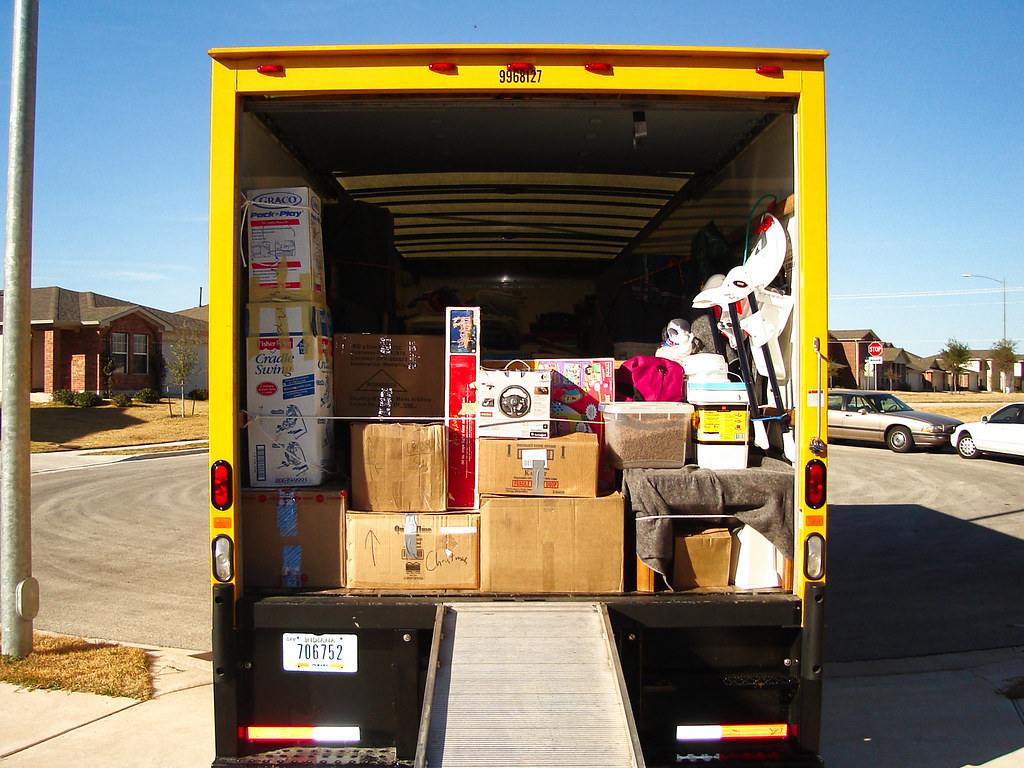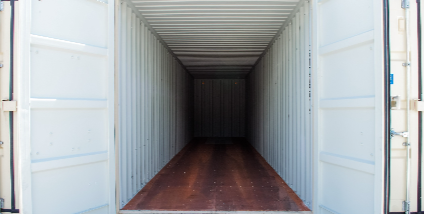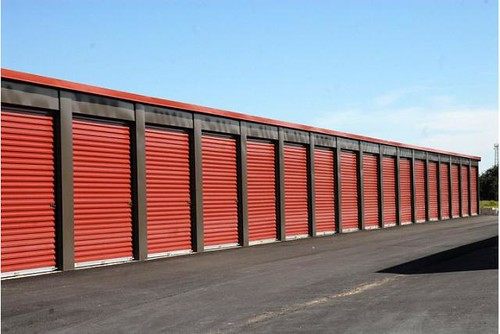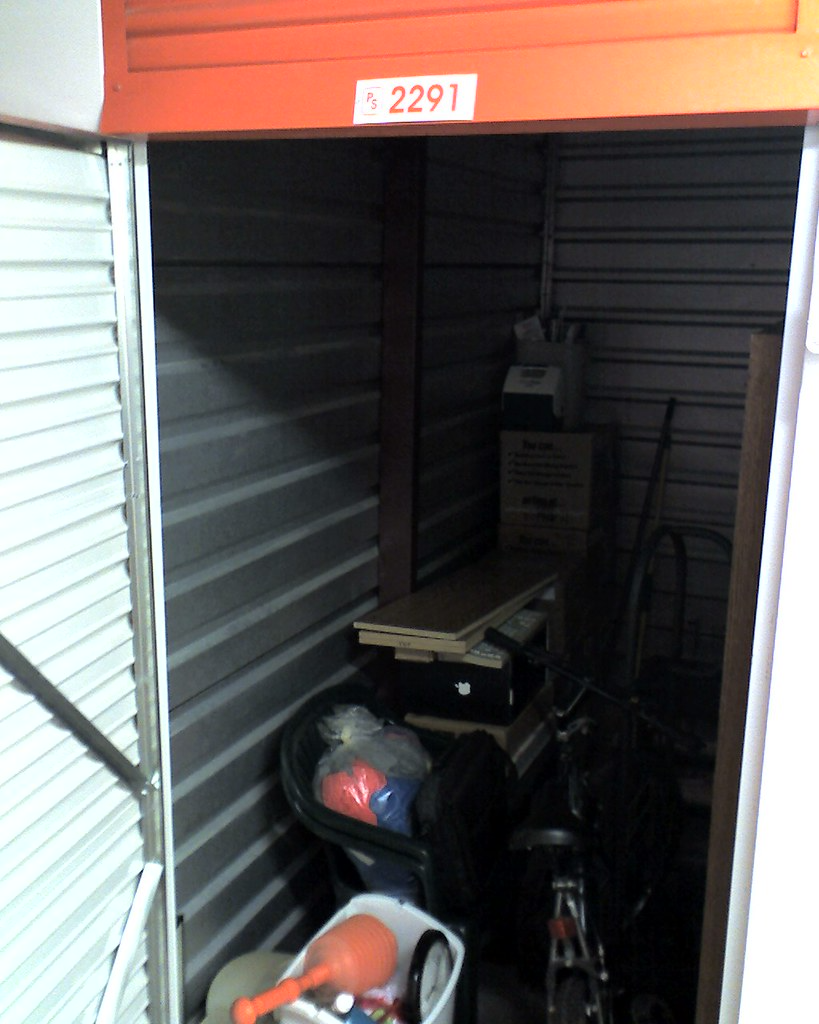Your Guide To Making The Right Choice In A Storage Unit
Choosing the right storage unit provider is key to making your moving or decluttering process as smooth and seamless as possible— in other words, a breeze. Getting it right the first time will save you headaches later on.
But what to look for in a storage unit and how do you know which one to go for? Great question!
We’re here to help. This detailed guide will help walk you through everything you need to know about storage units, from learning to assess your needs to essential factors for choosing a storage facility.
Now, let’s begin!
Understanding Storage Units
First things first, it’s important to first understand what storage units are and how they work so that you can make an informed decision for your situation.
What is a Storage Unit?
A storage unit is a secure and convenient space rented from a storage company for those in need of extra storage (both individuals and businesses). They provide space to keep your belongings safe and organized, whether you’re moving or just in need of extra storage.
Most storage units work similarly: you sign a contract with a storage company for a specified amount of time to secure a rental on a storage unit of your choice.
The storage unit agreement will lay out all the terms and conditions, including price per month, duration of the lease, and any other costs or fees. Make sure you read the fine print and understand your obligations and the services provided by the storage facility.
Storage units come in different types and sizes, from small lockers to large spaces capable of holding furniture, vehicles, and more. So, there’s basically everything for every single need, it’s just a matter of knowing what you need and then finding a unit to cover that for you.
Reasons for Using a Storage Unit
If you’re considering renting a storage unit, you likely have a good reason for it, but just to be sure, let’s see some of the most common reasons people use them. This might help decide if it’s the right move for you.
- Seasonal storage (holiday decorations, seasonal clothes, and lawn gear in storage when not in use)
- Moving to a new home (for storing your belongings temporarily while you’re preparing for a new home)
- Needing more space (for decluttering, downsizing, or making room for someone, or simply items you’re not ready to let go of)
- House renovation (furniture and other items during renovations to protect them and free up space)
- College storage (students can store their dorm items during summer break instead of hauling them home)
- Vehicle storage (boats, RVs, cars, or motorcycles if you don’t have space at home).

Determining Your Storage Needs
Now it’s time to do some planning. If you want to make sure you find the right storage unit and don’t regret any decisions along the way, it’s smart to understand your needs first.
What Are You Planning to Store?
We’re sure you roughly know what you’re planning to store, but the more specific you are, the better. It’s better not to leave any space for miscalculations or end up renting a bigger space than you actually need.
Thinking about these things in advance will help you stay within your budget and rent the right storage unit for your needs.
So, here’s what we recommend you do.
Make a master inventory list of the items you’ll be storing to help you determine the size and type of storage unit you need.
This approach will also help you with the organization later on when you need to access your things and know exactly what you have stored away.
Additionally, think about the specific needs of the things you’ll be storing. For example, sensitive items like electronics and wine might require a climate-controlled storage unit to protect them from extreme temperatures and maintain humidity levels.
Planning ahead like this will help you figure out which type of self-storage unit you’ll need to be on the lookout for and ensure your belongings are stored in the best possible condition.
Storage Space Calculation
Before you start looking for storage facilities, it’s vital to accurately assess how much space you’ll need. So start by measuring large furniture, mattresses, appliances, or any other items you’re planning to store to determine the size of the storage unit you need.
Next, pack and prep your belongings for storage. This step not only helps you visualize how everything will fit but also ensures that you’re maximizing space efficiently.
Finally, use a size guide to help determine the right size storage unit for your needs.
Many storage facilities typically provide a reference point for which items can go into which storage unit so this can help you get a better idea of the size of the space.
8 Factors to Consider When Choosing a Storage Facility
Now we get to the main topic of the day—what do you look for in a storage unit? Here are 8 most important factors to consider.
Storage Facility Features
When it comes to finding the right storage unit, the trick is to focus on the features that matter most to you.
Not all storage facilities are created equal—some might be in the perfect location but don’t have flexible access, while others are cheap but fall short of security.
Research different storage facilities and their services, including climate-controlled units, drive-up access, and security features, to ensure you get exactly what you need.
Also, weigh out the benefits of self-storage, which include flexibility in renting compared to other storage solutions, and the convenience of easy access to your items.

Storage Unit Options
Another factor to consider is storage unit options. Yes, we know, the world of many choices is sometimes overwhelming, but having different options in a storage unit is really useful.
There are many different storage options, such as indoor units, outdoor units, and climate-controlled units.
Indoor storage units are located inside a building, providing protection from the weather and offering a controlled environment for your items. You can typically access them via hallways or corridors, which can be a plus if you’re storing items that need to be shielded from the elements.
Outdoor storage units are located outside and have doors that open onto a driveway or parking lot. They are typically more convenient for loading and unloading bulky or heavy items but might be exposed to weather conditions.
Climate-controlled storage units help keep your stuff in a comfortable environment and are perfect for sensitive things like electronics and important documents. These kinds of units work best if protection from extreme temperature or humidity matters most to you.
Storage Facility Security
If there’s one thing you shouldn’t compromise on when you rent a storage unit, it’s security. You should feel as confident about the safety of your stored items as if they were tucked away in your own attic. So, make sure you look for a managed storage unit with a trustworthy storage facility.
Some of the good indicators of a safe facility are the following:
- Video monitoring or in-person surveillance
- Access control systems
- Insurance option
- Fence
- Fire prevention systems
- Well-lit facility
- Regular maintenance
The best-case scenario is to find a storage facility that checks all the boxes, but even having just a couple of these features can make a big difference. The key is to know your storage unit provider is committed to protecting your items.
Storage Unit Pricing
For most people, pricing is a determining factor, and that’s completely understandable. You don’t want to overpay for something, especially in this economy, but you still want to invest enough to ensure your stuff is safe and well-stored. It all boils down to finding a balance between cost and quality.
When it comes to storage units, there are lots of different options nowadays, probably more than you would think in your area. Plus, each facility offers different sizes and features for their units.
The exact price for storage units depends on the size and features of the unit. Price can also fluctuate according to local market conditions. There are also extra fees if you want to add insurance or ensure a longer rental period for your stuff.
At the end of the day, you want to find a provider that fits in your budget, so make sure you compare the market prices and determine what’s most important to you.

Payment Terms
Another factor to consider are payment terms. Before you settle on a storage item provider, you want to know all the facts, that includes the terms of your rental agreement. So, aside from researching prices and fees, do your research on what payment terms your most suitable storage facilities offer.
You’ll either be paying once a month on or before the date specified in your rental agreement. If the rental facility can accept payments online, this is the most convenient option. Get all your details beforehand and then make the decision based on all the facts.
Insurance and Liability
Insurance is a crucial factor for most people because it’s an added protection layer for your stored items. Self-storage insurance options range from in-house coverage to personal insurance policies. Most storage facilities have their own insurance options that you can add to your rental agreement. They usually cover for most situations like theft or fire, but pay attention to the fine print because they might not cover everything, like high-value items.
Prohibited Items and Policies
Be sure you get all the details about what you can and can’t store in your storage unit. Knowing this upfront will save you from any surprises later on.
Dangerous materials, such as flammable liquids, explosives, and toxic chemicals, are universally banned to prevent accidents and ensure the safety of the facility. You also can’t store living things—whether plants or animals— in a storage unit as these require special care and a stable environment that storage units can’t provide. You should also avoid storing items that are fragile or valuable. But if you have to go this way, make sure you take the necessary precautions.
The bottom line is that you should always check the facility’s specific prohibited items list and ensure you’re following their guidelines.
Abandoned Items
You might wonder what happens if you forget to pay or fail to retrieve your belongings from your storage facility. Generally, self-storage companies list your items in a storage auction if you don’t retrieve them when your lease expires. However, auctions are a last resort, and many storage companies don’t like them.
If you find yourself in a tough spot, you may be able to work something out if you call the facility manager. It’s definitely something to understand before signing any rental agreement.

Ready to Rent a Storage Unit?
A secure, well-maintained, and accessible storage unit is every homeowner’s dream solution for extra space. All of the above information will definitely help you find the right choice for your needs.
If you’re looking for self-storage in Ponca City, OK, you can count on us at My Storage Box.
We offer affordable, easily accessible, and secure storage units. Our facility is fully fenced, gated, and equipped with keypad access, so you can come and go as you please, knowing your belongings are in safe hands.
Ready to talk more about storage unit needs? Get in touch now! You can contact us 24/7, 7 days a week, and we’d be happy to assist you!
